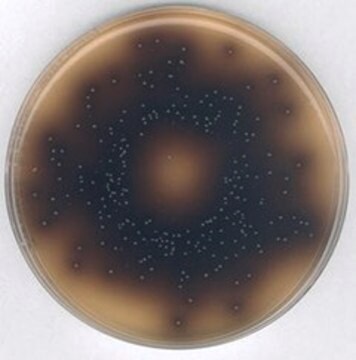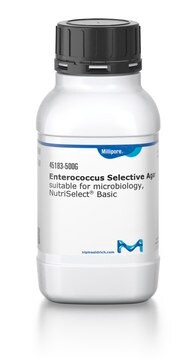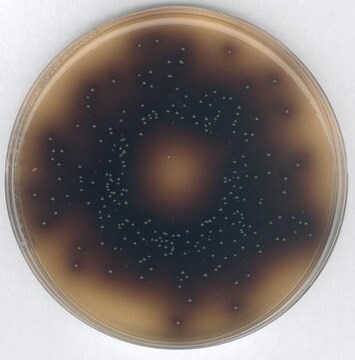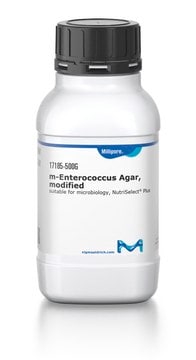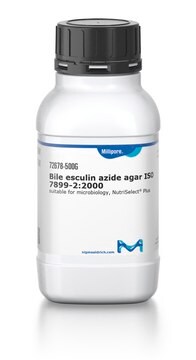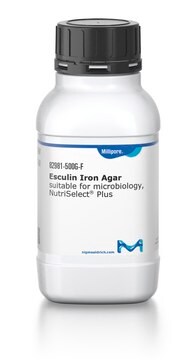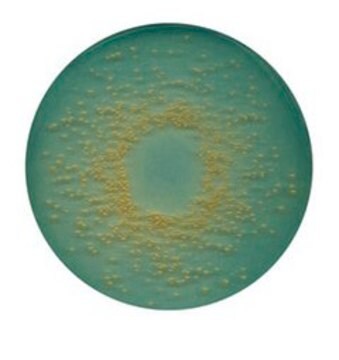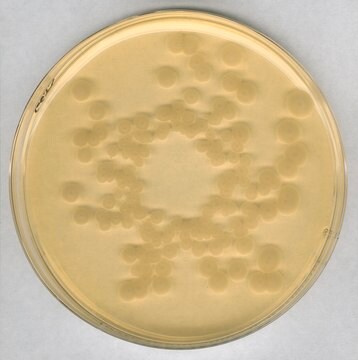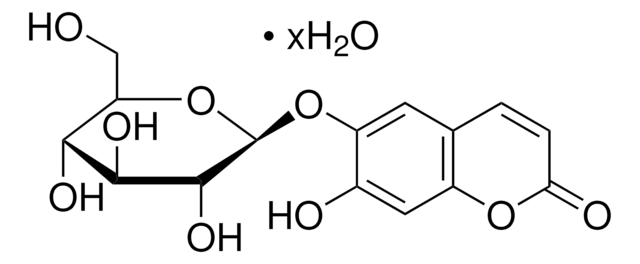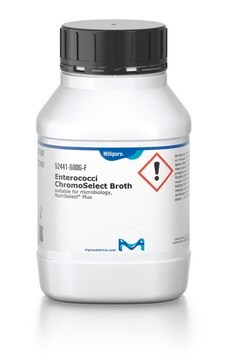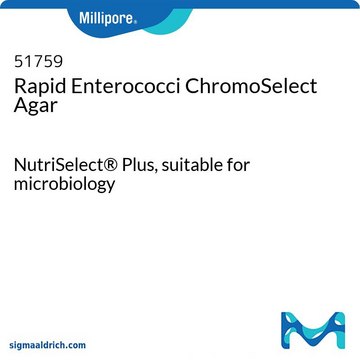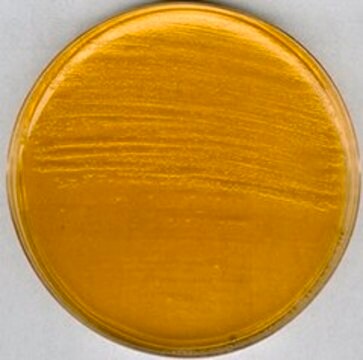48300
Bile esculin agar
suitable for microbiology, NutriSelect® Plus
Sinónimos:
Esculin Bile Agar
About This Item
Productos recomendados
agency
according to ISO 10273:2017
Quality Level
sterility
non-sterile
product line
BioChemika
form
powder
shelf life
limited shelf life, expiry date on the label
composition
agar, 15.0 g/L
esculin, 1 g/L
ferric citrate, 0.5 g/L
meat extract, 3 g/L
meat peptone, 5 g/L
ox-bile, 40 g/L
manufacturer/tradename
NutriSelect® Plus
technique(s)
microbe id | specific enzyme detection: suitable
final pH
6.6±0.2 (25 °C)
application(s)
environmental
food and beverages
water monitoring
microbiology
suitability
Streptococcus spp.
selective and differential for Enterococcus spp.
Application
Preparation Note
Footnote
The designations basic, plus, or prime are added to indicate the quality control level, from basic quality control to standard QC plus to prime for full regulatory compliance.
Legal Information
Storage Class
11 - Combustible Solids
wgk_germany
WGK 3
flash_point_f
Not applicable
flash_point_c
Not applicable
Elija entre una de las versiones más recientes:
¿Ya tiene este producto?
Encuentre la documentación para los productos que ha comprado recientemente en la Biblioteca de documentos.
Los clientes también vieron
Nuestro equipo de científicos tiene experiencia en todas las áreas de investigación: Ciencias de la vida, Ciencia de los materiales, Síntesis química, Cromatografía, Analítica y muchas otras.
Póngase en contacto con el Servicio técnico